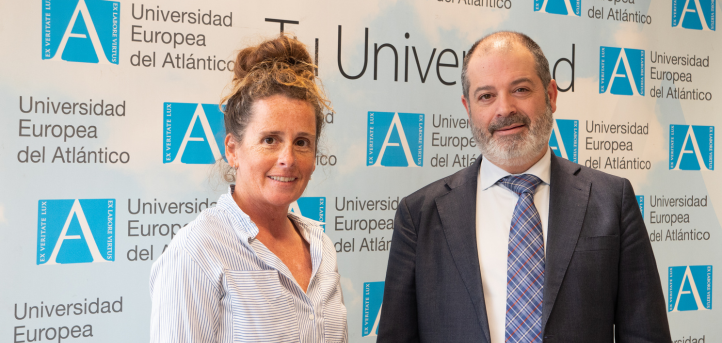Quelccaya Challenge. This is the name of the challenge that the Cantabrian Raquel García will face during the month of May. To achieve this, the Universidad Europea del Atlántico (European University of the Atlantic) has signed a collaboration agreement with the athlete and supports her in her attempt to become the first woman on the planet to complete the longest glacier in the entire tropical zone of the world, in the Ausangate mountain range in Peru.
UNEATLANTICO continues to collaborate in the different challenges of the Cantabrian Raquel García. After the challenge in Turkish Kurdistan, the Trail Himalaya Nepal, the Pisang Peak 21 project, whose objective was to climb one of Nepal’s seismic peaks, or the challenge of becoming the first Spanish woman to climb the Incahuasi volcano in the winter season, the next objective is the Quelccaya.
The surface area of this giant is 44 km², and the ice cap is 200m thick. From its summit at 5,650 meters above sea level, the entire Vilcanota mountain range can be seen. “Tackling the summit of the world’s largest tropical glacier at more than 5,000m is an extreme challenge both physically and mentally, as no woman has done it so far,” says the protagonist. “To this, we can add the complexity that, when we face this challenge, we have to reckon with the changes that this giant, icy mass is undergoing, yielding to the effects of climate change,” she points out.
The expedition, which will be covered by the international magazine based in Argentina, “CUMBRES MOUNTAIN MAGAZINE,” is once again a solidarity-based event. Raquel García and her team will visit the village of Pacchanta, at the beginning of the first acclimatization, and there they will deliver school supplies and toys. “It is in this village that we will also offer health care since they do not have the possibility of being able to rely on first-hand medical help due to their remoteness from larger towns or villages. For this, we have the doctor (cardiologist) Juan Pablo Hernando, who was already present on the previous expedition to Turkish Kurdistan,” she adds.
During the six days of acclimatization in the Ausangate mountain range, they will sleep in tents, only surrounded by old, abandoned villages, and snow avalanches can be heard regularly. During the expedition, they will also record a documentary, which will once again be one of the pillars of the project, as it will allow them to share their experiences after the return of the expedition.


